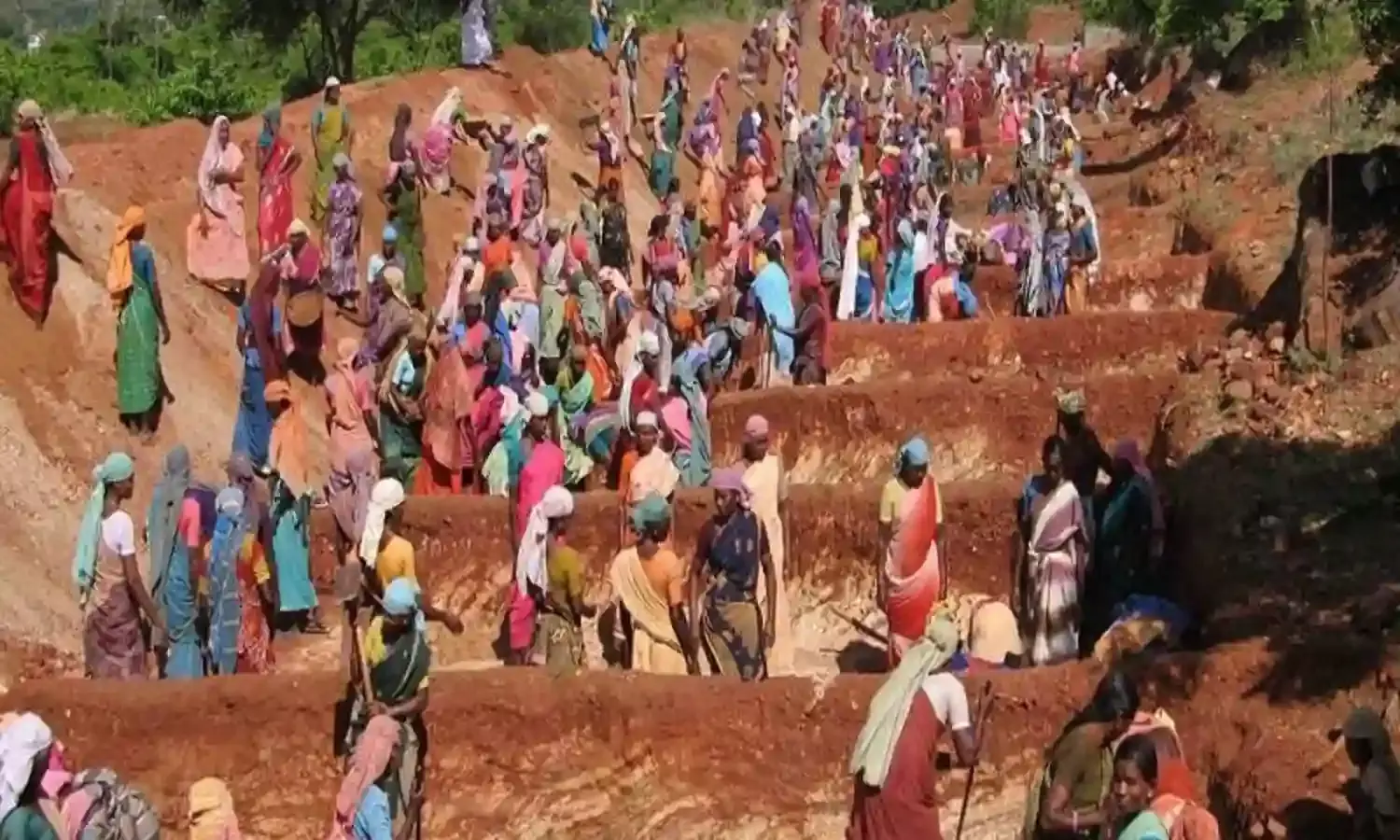MNREGA: A Policy Not Shelved But Steadily Beggared
A shattered dream

In 2005-06 a group of activists including Aruna Roy, Nikhil Dey,Jean Dreze as well as this writer had long discussions with politicians, especially from the Congress, with Sonia Gandhi strongly supporting the goal of a sustained monetary support to the rural poor.
Some eminent Congressmen were not very impressed, which led to Dreze thinking of leaving an apex committee that was to be formed. But Sonia Gandhi was convinced that there was a clear and present need for what became the National Rural Employment Guarantee Act (NREGA).
The draft Act was taken to a Parliamentary committee which increased the wages from the NREGA’s 100 days of work per family per year on official minimum wages, by a substantial amount. This the Congress leaders impressed upon us was not feasible.
In the meantime, two groups of activists and senior students were sent to Chattisgarh and Jharkhand. Both Dreze and I went by turn to both States, along with our young but dedicated teams. In our discussion with rural labour, in what were open assemblies (Jan Sunvai), where the labour was free to ask pertinent questions to be answered by the Administration.
The rules were quite strict. Any allegation on the functioning of NREGA, would be investigated, and the findings were to be reported as soon as possible. The bulk of the questions were asked by the rural women, though with the passage of time, men became increasingly assertive.
Of course, the official minimum wages for 100 days promised per family, were only a supplement to the meagre income of the rural poor. However, it was the best option available, though we hoped that the number of work days would be increased by at least by 50 more days.
Instead, the NDA swept to power. Prime Minister Narendra Modi dismissed MGNREGA ( Mahatma Gandhi National Rural Employment Guarantee Act--as the Act was renamed during the later part of the Congress rule), as a monumental mistake.
Rajasthan Chief Minister Vasundhara Raje, asked it to be reduced to a scheme as opposed to a Union government policy. There was inadequate support to MGNREGA even from the secular parties including the Congress.
Since then better days for MGNREGA did not come. The NDA government did not shelve the policy but beggared it. Currently, out of 36 states and Union Territories, as many as 28 are not getting the official minimum wages promised under MGNREGA. This in a period when agricultural growth is declining. The growth of agriculture which was 6.3 per cent in 2017 financial year dropped sharply to only 3.4 per cent in 2018 financial year. The GDP growth was only 6.7 per cent in 2017-18, the lowest in the four years of the NDA government.
Now there is another twist to the MGNREGA caravan. The Rural Development Ministry in a notification issued last month, has appointed a large number of members of the saffron groups as members of the Central Employment Guarantee Council (CEGC) with its tenure of one year beginning 20 June, when the term of the present committee expires.
These worthies include: 1) Hitesh Shankar, Editor, Panchjanya Weekly, named as a non-official member from Delhi. From Uttarakhand, the ministry has nominated Sanjay Chaturvedi, convenor of Divine International Foundation (DIF) which is described itself as “a separate entity of Divya Prem Sewa Mission,” started by RSS pracharak Ashish Gautam.
This mission in turn is linked to yoga guru Ramdev’s Patanjali as one of its partners. Another nominated member is G.Vasudev from Vivekanand Kendra at Kanyakumari, a Hindu spiritual organisation founded in the seventies by Eknath Ranade, a senior RSS pracharak. Another member of the CEGC is Sudhir Aggarwal who describes himself as a “swayam sevak since childhood.” Aggarwal is a lawyer who has listed the “Baba Ramdev case” under his “major activities.” Yet another member is Vikshut Mundkur, co-founder and CEO of Bangalore-based HUVI Air Technologies Private which “enables construction companies to embed drone data based insights across all stages of construction projects.”
Contrast these members of the initial CEGC members which included social activists and economists like Aruna Roy (formerly IAS), Jean Dreze (a prominent economist) and Nikhil Dey (social activist) backed by a large number of activists from universities, sociologists, economists, etc.
The most distressing aspect of MGNREGA, is the absence of interest in the needs of the rural poor and what they require. As the purchasing power of the rupee has fallen, one would expect the secular parties to push for more funds for MGNREGA. But the secular political parties don’t appear to find it a priority.
There has not even been a major demonstration in or outside Parliament, about the reinstatement of official minimum wages. Of course, the secular parties are critical of the decline in agricultural growth. But have they said a word about MGNREGA?



